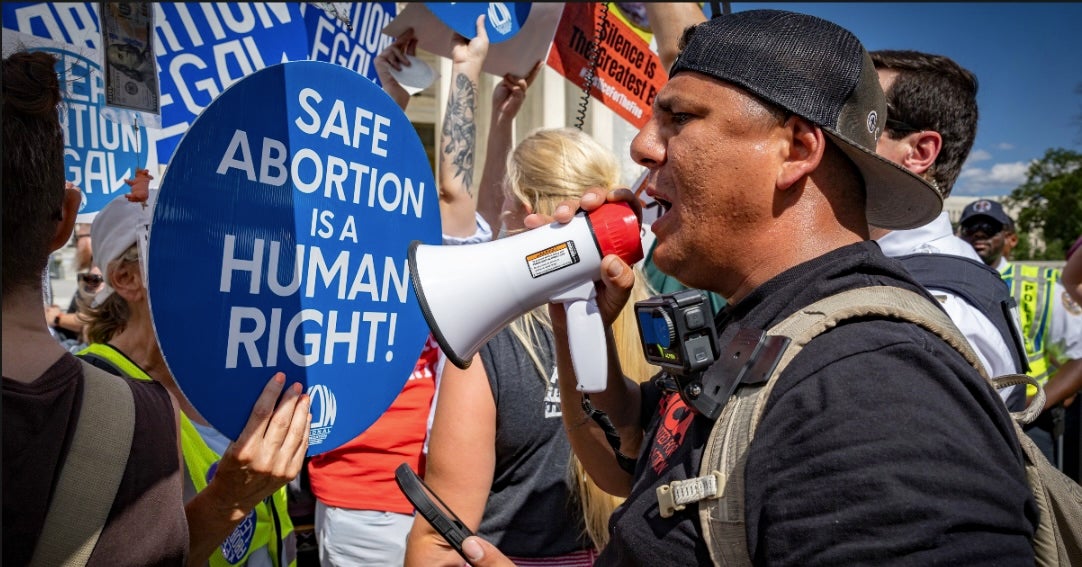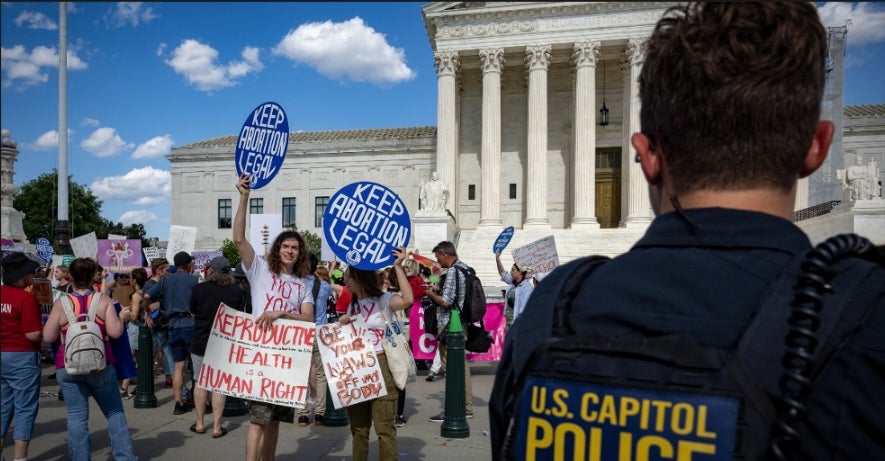Supreme Court releases official opinion allowing Idaho emergency abortions a day after its premature release
The release of the opinion comes a day after a draft opinion was ‘inadvertently’ posted to the court’s website
Your support helps us to tell the story
From reproductive rights to climate change to Big Tech, The Independent is on the ground when the story is developing. Whether it's investigating the financials of Elon Musk's pro-Trump PAC or producing our latest documentary, 'The A Word', which shines a light on the American women fighting for reproductive rights, we know how important it is to parse out the facts from the messaging.
At such a critical moment in US history, we need reporters on the ground. Your donation allows us to keep sending journalists to speak to both sides of the story.
The Independent is trusted by Americans across the entire political spectrum. And unlike many other quality news outlets, we choose not to lock Americans out of our reporting and analysis with paywalls. We believe quality journalism should be available to everyone, paid for by those who can afford it.
Your support makes all the difference.The Supreme Court has officially ruled in an Idaho abortion case that would allow doctors to provide the procedure in medical emergencies.
The ruling was released Thursday, a day after a draft opinion was “inadvertently” published as the court issued other opinions. The Wednesday post was quickly removed, but not before members of the media found it.
Justices split 6-3 with the court’s majority reinstating a lower-court ruling that ensured hospitals in Idaho provide abortions in emergency medical situations but declining to issue a firm decision in the dispute. Conservative Justices Clarence Thomas, Samuel Alito and Neil Gorsuch dissented.
Instead, they will dismiss the case as improvidently granted – meaning the justices believe they should not have taken up the case.
The ruling is a fragile victory for abortion rights advocates who have warned that pregnant people in states with strict abortion bans could face injury or death due to the laws in six particular states. However, because the court declines to make a firm decision it leaves the door open for future challenges.

The case comes out of Idaho, which enacted a strict abortion ban in 2022 that imposes criminal penalties on doctors who perform abortions but includes a narrow and vague exception to protect the life of a pregnant person.
That exception says a physician must use “good faith medical judgment” to determine whether an abortion is necessary to prevent a person from death. However, it fails to clarify what “good faith” means – leaving many doctors and hospitals susceptible to criminal penalties.
Texas, Arkansas, Mississippi, Oklahoma and South Dakota have enacted similar laws that use vague language, leaving pregnant people at risk of bodily harm or increased chance of death.
The Biden administration intervened, claiming state law conflicts with federal law that requires emergency room doctors to use medical intervention necessary to stabilize a patient. However, the law does not explicitly mandate which medical treatments, like abortions, are necessary.

In what appears to be the concurring opinion from the court’s three liberal justices, Justice Elena Kagan writes that the text of federal law is straightforward: hospitals are required to “stabilize” patients with an “emergency medical condition” that could pose serious jeopardy to their health, and “when a pregnancy goes terribly wrong, that treatment may be an abortion.”
Federal law doesn’t list abortion as a protected treatment, but it doesn’t list any at all, and all other forms of emergency services are protected under federal law. Abortion can’t be the exception, according to the justices.
“This months-long catastrophe was completely unnecessary,” wrote Justice Ketanji Brown Jackson, who concurred in part but disagreed that the court should have rejected the case as improvidently granted.
“More to the point, it directly violated federal law, which in our system of government is supreme,” she wrote.
The accidental release of the opinion marks the second time within two years that a major abortion rights ruling was released before the Supreme Court officially published it.
Politico obtained and published a draft of Justice Samuel Alito’s written opinion to overturn Roe v Wade in May 2022 before the court published the final ruling on June 24.

Join our commenting forum
Join thought-provoking conversations, follow other Independent readers and see their replies
Comments